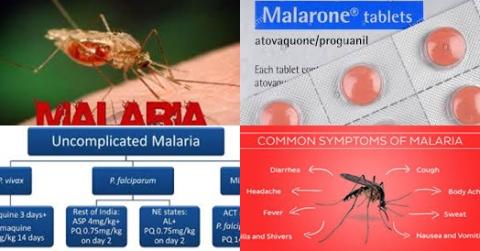
Objectives:
Atovaquone/proguanil, registered as Malarone®, is a fixed-dose combination recommended for first-line treatment of uncomplicated Plasmodium falciparum malaria in non-endemic countries and its prevention in travellers. Mutations in the cytochrome bc1 complex are causally associated with atovaquone resistance. Therefore, this review article (meta-analysis) has been conducted.
The aim of this review article is to assess the clinical efficacy of atovaquone/proguanil treatment of uncomplicated malaria and examines the extent to which codon 268 mutation in cytochrome b influences treatment failure and recrudescence based on published information.
Study design:
This review article included 27 P. falciparum studies with 1960 patients, of whom 1695 were treated and followed up to 28 days (86.5%). A total of 1640 patients were successfully treated up to 28 days, 83.7% of the 1960 original patients and 96.8% of the 1695 treated and followed-up patients. Most of the 27 studies were of low methodological quality, being small and having between 18 and 253 participants receiving atovaquone/proguanil.
14 of the 27 studies were RCT designed to test the efficacy of atovaquone/proguanil or used atovaquone/proguanil as a control treatment and participants of these made up only 55% of the total participants.
Results and conclusions:
The investigators found that atovaquone/proguanil treatment efficacy was 89%-98% for P. falciparum malaria (from 27 studies including between 18 and 253 patients in each case) and 20%-26% for Plasmodium vivax malaria (from 1 study including 25 patients).
The investigators found that the in vitro P. falciparum phenotype of atovaquone resistance was an IC50 value >28 nM.
The investigators found in case report analyses that recrudescence in a patient presenting with parasites carrying cytochrome b codon 268 mutation would occur on average at day 29 [95% CI = 22-35], 19 [95% CI = 7-30] days longer than if the mutation is absent.
The investigators concluded that atovaquone/proguanil therapy is comparable in efficacy to ACT used in treating uncomplicated malaria. Late treatment failure is likely to be associated with a codon 268 mutation in cytochrome b, though recent evidence from animal models suggests these mutations may not spread within the population. However, early treatment failure is likely to arise through alternative mechanisms, requiring further investigation.
Original title:
Clinical implications of Plasmodium resistance to atovaquone/proguanil: a systematic review and meta-analysis by Staines HM, Burrow R, […], Krishna S.
Link:
https://academic.oup.com/jac/advance-article/doi/10.1093/jac/dkx431/4693708
Additional information of El Mondo:
Find more information/studies on food fortification/malnutrition and study design/meta-analysis/significant right here.